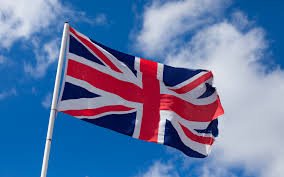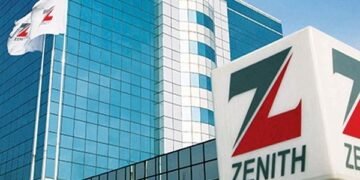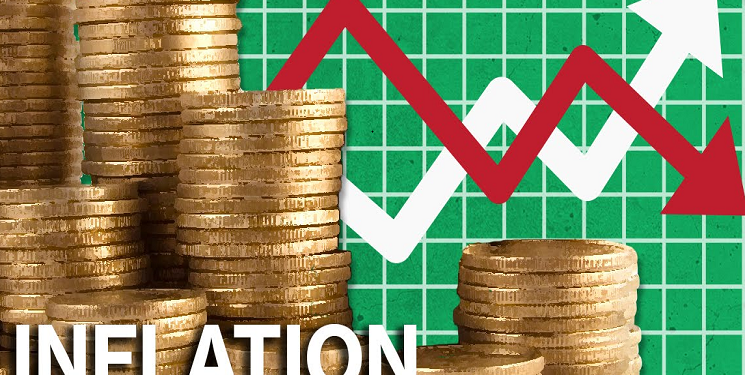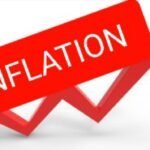Inflation rate has continued to rise in Nigeria. Prices of goods and services are getting more expensive by the day. According to the latest report by the National Bureau of Statistics, the Consumer Price Index (CPI) which measures inflation increased by 12.82% year on year in July 2020. This represents a 0.26% increase compared to 12.56% recorded in June 2020.
Increases were recorded in all 12 Classification of Individual Consumption by Purpose (COICOP) divisions that yielded the Headline index, such as food and non-alcoholic beverages; clothing and foot wear; housing, water, electricity, gas; health; transport, communication, etc.
On month-on-month basis, the headline index increased by 1.25% in July 2020, this is 0.04% rate higher than the 1.21% rate recorded in June 2020.
July inflation rate is the highest that has been recorded in Nigeria in over 2 years (28 months to be precise), as the average prices of goods and services continue to rise in the country.
Prior to Covid-19 pandemic, inflation rate has been on the increase in Nigeria since September 2019, as a result of border closure by the Federal Government. July figure is the eleventh (11th) consecutive rise in inflation rate.
Although the recent increases, is largely attributed to the increase in prices of goods and services emanating from the economic crisis of the pandemic.
Have you read?
- Price adjustment of MTNN and Flourmill forced equity market to close in red
- Breaking; International Flights to resume in Nigeria
The value of the naira has been dropping against the dollar and pounds, thus importers will spend more naira to acquire the same goods or raw materials, which will ultimately translate to a higher price for the consumers. Earlier this month the Central Bank of Nigeria (CBN) devalued the official rate of naira for the second time in 2020.
The urban inflation rate increased by 13.40% (year-on-year) in July 2020 from 13.18% recorded in June 2020, while the rural inflation rate increased by 12.28% in July 2020 from 11.99% in June 2020.
On a month-on-month basis, the urban index rose by 1.27% in July 2020, up by 0.04 from 1.23% recorded in June 2020, while the rural index also rose by 1.23% in July 2020, up by 0.04 from the rate recorded in June 2020 (1.19%).
The composite food index rose by 15.48% in July 2020 compared to 15.18% in June 2020. This rise in the food index was caused by increases in prices of Bread and cereals, Potatoes, yam and other tubers, Meat, Fruits, Oils and fats, and Fish.
On month-on-month basis, the food sub-index increased by 1.52% in July 2020, up by 0.04% points from 1.48% recorded in June 2020.
- Read more; Forex Forecast for the week ending 16th to 20th August 2020
- Flour Mills of Nigeria Plc rakes in N154.6 bn revenue in just 3 months for Q1 2020/2021 financial year
The ”All items less farm produce” or Core inflation, which excludes the prices of volatile agricultural produce stood at 10.10% in July 2020, down by 0.03% when compared with 10.13% recorded in June 2020.
On month-on-month basis, the core sub-index increased by 0.75% in July 2020. This was down by 0.11% when compared with 0.86% recorded in June 2020.
The highest increases were recorded in prices of Medical services, Passenger transport by air, Pharmaceutical products, Hospital services, Passenger transport by road, Maintenance and repair of personal transport equipment, Paramedical services and Vehicle spare parts.
The average 12-month annual rate of change of the index was 9.48 percent for the twelve-month period ending July 2020; this is 0.11 percent points higher than 9.37 percent recorded in June 2020..
In July 2020, all items inflation on year on year basis was highest in Bauchi (16.10%), Kogi (15.90%) and Sokoto and Plateau (15.20%), while Lagos (10.70%), Adamawa (10.60%) and Kwara (10.50%) recorded the slowest rise in headline Year on Year inflation.
On month on month basis however, July 2020 all items inflation was highest in Kogi (2.85%), Zamfara (2.44%) and Yobe (2.35%), while Ondo (0.67%), Adamawa (0.63%) and Ogun and Imo (0.62%) recorded the slowest rise in headline month on month inflation
Read further; How are Financial Statements Prepared? Establishment/Preparation of a Company
In July 2020, food inflation on a year on year basis was highest in Kogi (20.09%), Sokoto (19.28%) and Plateau (18.05%), while Adamawa (13.37%), Abia (13.33%) and Lagos (13.13%) recorded the slowest rise.
On month on month basis however, July 2020 food inflation was highest in Zamfara (3.40%), Kogi (3.32%) and Yobe (3.00%), while Niger and Ogun (0.44%), Lagos (0.41%) with Adamawa recording price deflation or negative inflation. Deflation is a general decrease in the price level of food or a negative food inflation rate.
With continuous rise in inflation rate, the purchasing power of the masses is declining. The economic hardship in Nigeria is increasing with many people losing their jobs and several out of business.
This means that the same amount of money will purchase limited amount of goods or services than it use to. This scenario presents a difficulty especially for fixed income earners, whose income is not moving in the same direction as the inflation.
The reduction in value of money also have adverse effects on cash assets especially the cash held at hand or in bank accounts.
Written by;
Ifunanya Ikueze

























































